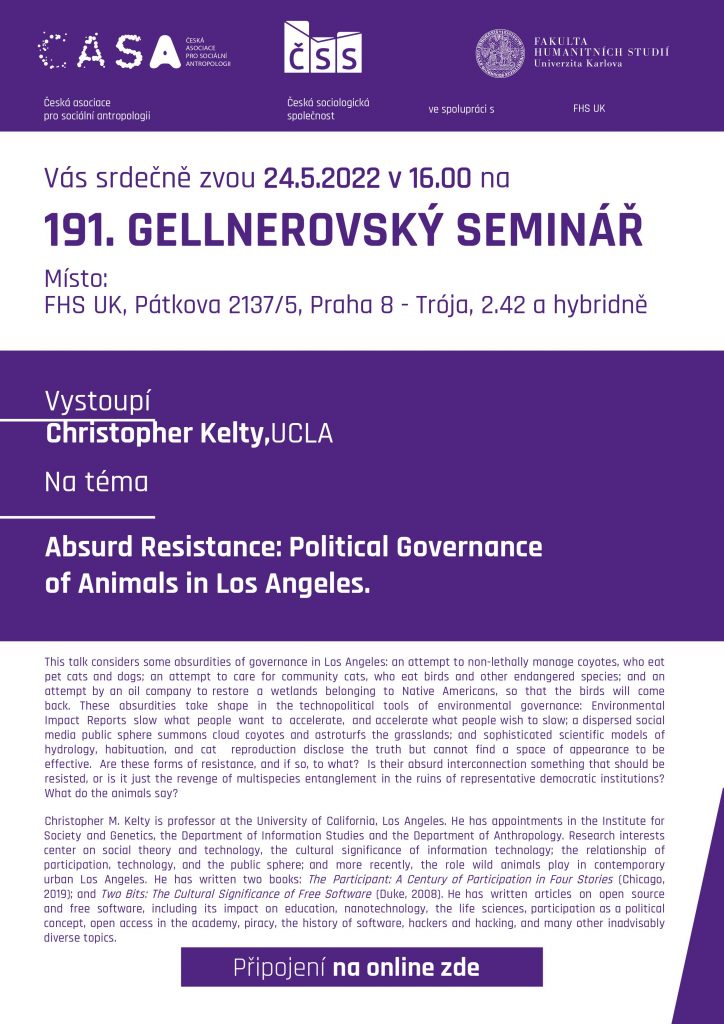
odkaz pro připojení přes Zoom naleznete v PDF souboru
Abstrakt
This talk considers some absurdities of governance in Los Angeles: an attempt to non-lethally manage coyotes, who eat pet cats and dogs; an attempt to care for community cats, who eat birds and other endangered species; and an attempt by an oil company to restore a wetlands belonging to Native Americans, so that the birds will come back. These absurdities take shape in the technopolitical tools of environmental governance: Environmental Impact Reports slow what people want to accelerate, and accelerate what people wish to slow; a dispersed social media public sphere summons cloud coyotes and astroturfs the grasslands; and sophisticated scientific models of hydrology, habituation, and cat reproduction disclose the truth but cannot find a space of appearance to be effective. Are these forms of resistance, and if so, to what? Is their absurd interconnection something that should be resisted, or is it just the revenge of multispecies entanglement in the ruins of representative democratic institutions? What do the animals say?
Bio
Christopher M. Kelty is professor at the University of California, Los Angeles. He has appointments in the Institute for Society and Genetics, the Department of Information Studies and the Department of Anthropology. Research interests center on social theory and technology, the cultural significance of information technology; the relationship of participation, technology, and the public sphere; and more recently, the role wild animals play in contemporary urban Los Angeles. He has written two books: The Participant: A Century of Participation in Four Stories (Chicago, 2019); and Two Bits: The Cultural Significance of Free Software (Duke, 2008). He has written articles on open source and free software, including its impact on education, nanotechnology, the life sciences, participation as a political concept, open access in the academy, piracy, the history of software, hackers and hacking, and many other inadvisably diverse topics.